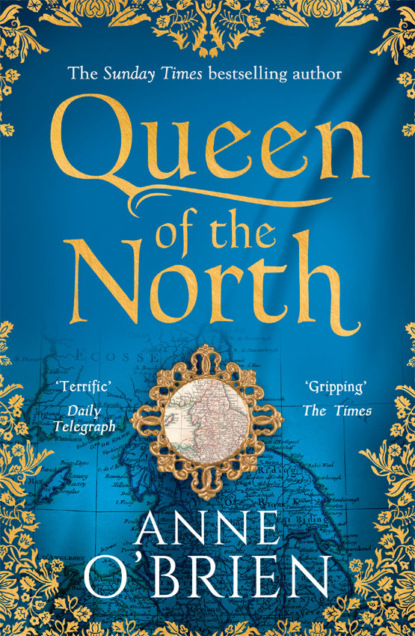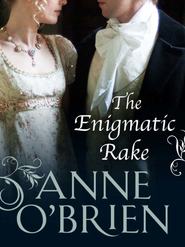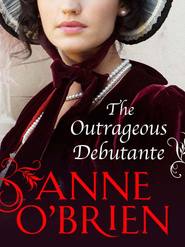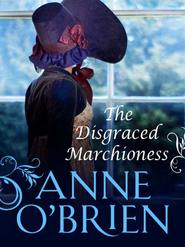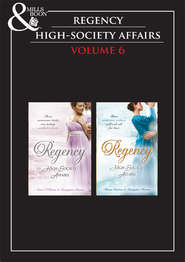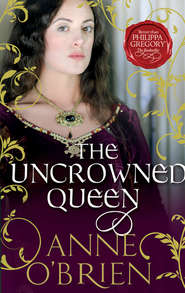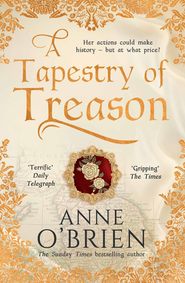По всем вопросам обращайтесь на: info@litportal.ru
(©) 2003-2025.
✖
Queen of the North: sumptuous and evocative historical fiction from the Sunday Times bestselling author
Настройки чтения
Размер шрифта
Высота строк
Поля
I lifted my daughter Bess high into my arms, so that she could see over the stone coping of the parapet.
‘Don’t wriggle,’ I said. Without noticeable effect.
We were standing at the highest vantage point of the barbican, bold in its crenellations, our various hair and veils and enveloping cloaks straining against the constant breeze from the north-west. In my memory it was always autumn or winter at Alnwick, whatever the month decreed, and even now in my maturity it was a cold place. The sable lining of my cloak felt chill, like a cold cat, against my throat.
We had been ordered here to the barbican by the command of the Earl, a man as unbending as the wind that harried us. Three generations of the mighty Percy family hemmed me in, three generations of darkly red-haired power, now glowing mahogany under the noonday sun. Henry Percy, Earl of Northumberland, my father by law. Sir Henry Percy, his son and heir and my husband. Henry Percy, my son, aged five, more interested in the ants’ nest beneath the stones than the spread of acres on all sides. All Henrys. All long-limbed with the musculature of a soldier. All blessed, or cursed some would say, with a driving ambition for power. Even my son, growing in fine Percy style, was directing the ants in a path of his choosing with a strategic pile of pebbles.
The Earl’s arm swept in an expansive gesture to match his gaze, taking in all to be seen. To the east, the wooded pastures in the direction of the sea and Warkworth, another Percy stronghold. South across the deep ravine towards the benign reaches of England. West where the March stretched to the further coast, far beyond our sight. And then north, across the great bailey and the formidable towers of our home, across the River Aln, to the threat of the darker hills of Scotland and a darker marauding Scottish power, for here in the northern March the Scots were our enemy.
‘This is ours,’ the Earl said, voice clear enough though beginning to crack with age and much bellowing across Scottish battlefields. Now it disturbed a pair of roosting jackdaws that lifted into the wind with their sharp repetitive cries. ‘Every acre, every tree, every sod of earth. All fought over and won. We will hold it, and more, until the Day of Judgment, when all earthly things come to an end.’
‘As long as the King of England allows it,’ I said, my eye on my son who had abandoned the ants and begun to climb dangerously. Lowering Bess to her feet, I kept her hand clasped in mine; she was too young at four years for these excursions to the windswept heights to witness our greatness. True, these Percy lords were Wardens of the East and West March in the north, guarding England against Scottish incursions, but such office was dependent on the favour of the King of England. What was given with a generous hand could be taken away by one dripping with malice, or simply a desire to reward a different lord. Our King was known for his unpredictability.
‘We have a right to it.’ The Earl was unimpressed by any comment I might make on royal limitations on our northern supremacy.
‘As long as Ralph Neville gains no more power at our expense.’ Sir Henry leaned, elbows sharp against the wall, looking west in the direction of Raby Castle where Ralph Neville, Earl of Westmorland, sat and probably gloated over his growing power. ‘Our King is inclined to favour him.’
‘Our King is sometimes a royal fool.’ The Earl turned his back on Raby, narrowing his eyes against the sun, thus summarily dismissing King Richard. He sniffed. ‘There is change in the air.’
‘For good or ill?’ I asked, in no manner cowed by the previous rebuff.
‘For good. Always for good.’ His eyes rested on me, surprising me with their speculation, as if some thought had lodged in his mind to which I was not privy. There were always plots and stratagems in the Earl’s mind to which I was not privy. ‘There will be no challenge to our power, Elizabeth. Are we not Kings of the North?’
‘We’ll be frozen Kings of the North if we remain here much longer.’ Sir Henry tucked our daughter under one arm and, with his free hand, led me down the narrow stair to the busy bailey in the wake of our son.
Kings of the North.
Indeed we were, for there was no real challenge to Percy hegemony. I was Elizabeth Mortimer, of royal descent; wife of Sir Henry Percy, heir to the Earl of Northumberland. Sir Henry Percy whom the Scots, in their wisdom, their admiration and their fear on the battlefield, called Hotspur. One day, when the Earl’s earthly days came to an end and Sir Henry took ownership of the cushioned chair at the head of the Percy deliberations, I would be Queen over these northern acres.
Chapter One (#ulink_4c384388-1cbd-5016-830a-6a4670149417)
Warkworth Castle: June 1399
I knew that he had come home. It was impossible not to know, given the assault on the ear of men and horses that filled the bailey beneath my south-facing window, the heavy rumble of wagons echoing off the stone walls. I paused, my hand on the door latch. Considering.
I could hitch my skirts above my ankles like a girl and run down the stairs to greet him, to share the same space, to breathe the same air as the man I loved more than the sum of all the Percy acres and Percy jewels. Or I could walk down, with all the dignity appropriate to the female head of the Percy household, mistress of Alnwick and Warkworth and many other castles from one end of the northern March to the other, since the Earl’s second wife Maud had died of a deep melancholy the previous year. Or I could remain here in my withdrawing chamber above the great hall and wait.
I smiled, sat, picked up some stitchery which would occupy my fingers but not my mind. I would wait. I had grown wiser in my time here, my twenty years of marriage from the distant age of eight years. Now I had twenty-eight years’ experience of life and Percy caprice, and knew how to use it well. He would come to me when he had done what needed to be done, until which time I would be a hindrance. Besides, the Earl was also in residence here at Warkworth, the castle much favoured above the stark environs of Alnwick. I did not willingly cross his path except through necessity, when we were both impeccably polite, until the Earl forgot to mind his manners. I never forgot to be discreet, but the Earl enjoyed his reputation for enforcing his will with brutal words. He would be in the courtyard, faster than I could sneeze, to welcome his son. I would wait where I was.
But in anticipation, I sent my women away, to gossip elsewhere.
The minutes passed, the hubbub in the bailey lessening, the tendrils of some fanciful plant growing rapidly under my needle, my thoughts with the man who should be climbing the spiral stair even now. My blood heated a little, my heart quickened its beat a little, but I knew there was no trace of it on my face.
At last.
Booted feet, leaping from one stair to the next. He rarely walked up any flight of stairs, as if speed and hurry had been sprinkled over him in a golden shower on the day that he was born thirty-five years ago. Now he had been absent for two months in his capacity as Warden of the East March, a position he had held for four years, a position that was as important to him as the much-prized sword at his side, but which demanded heavily on his time away from me. It did not surprise me that he ran.
The door was flung back so that it smacked against the wall. There he was, framed in the arch.
‘Elizabeth.’
‘You are right welcome, Harry.’
I was already standing, hands demurely folded, my stitchery tidied away, a suitable decorum for a future Countess of Northumberland, curtseying to the future Earl. Tall and lean, his skin fair, the gift or blight of many who were blessed with his colouring, he was from head to toe a man of action, evidenced by an abrasion on his chin and along his jaw that he had acquired at some point in his journeying. Energy spiked around him as his hair caught fire in a burst of sun through the high window.
‘You look well,’ I observed, any longing to step closer and touch him in the flesh disguised, for I was overcome with a breath of reserve after so long an absence. It always surprised me that it should be so, but his presence in my chamber was overwhelming. ‘In spite of riding over half of the northern reaches of this realm,’ I added.
‘As ever.’
He shrugged, careless of his health, as the door was shut with as much force as it had been pushed open. His eyes were bright, brighter than any jewel. Harry rarely wore jewels. As Warden of the East March, lurching from one affray to another, he rarely saw the need, unless he was summoned to the Royal Court when, grudgingly, he made the effort to play the great magnate.
‘Did you find a suitable mount for Hal?’ I asked. Our son was now of an age to be riding.
‘I did. A sturdy roan with just a hint of mischief in her eye. Hal will enjoy her.’
‘Good. No fighting in the March?’
He was stripping off gloves, letting them fall to the floor at his side along with the soft cloth that protected his throat, then unlatching and unbuckling his brigandine. Once it had been graced with a fine damask finish with even a hint of gold thread at neck and wrist; now the metal plates were bare in places. He needed a new one. It too was abandoned on the tiles, hiding the boldly painted Percy lions that pranced beneath our feet, announcing the ownership of this fortress if any should be in doubt.
‘None worth mentioning. The odd skirmish, to keep the border reivers in check.’
‘So that’s why your garments look as if they have been in the thick of a battle. How fast have you ridden?’
I knew of course without asking him. He beat some of the dust from the tight-fitting sleeves of the gypon. Unfashionable they might be, with not even a nod to the dagged fripperies so much in vogue at Richard’s court, but Sir Henry had as little interest in fashion as in gems, whereas swords and horseflesh moved him to extravagant admiration.
‘Fast.’ His arms were spread wide. ‘Well, my wife. Will you keep your distance? If you don’t mind a muddy smear or two on your fine gown…’
‘It’s the fleas I take exception to.’ I was already walking towards him, my demureness falling away step by step with my diffidence as he grinned and ruffled his hair into sweaty disarray. I would swear that he had the vigour to charm the rats from their nests in the stables. ‘I’ll tolerate a muddy smear on this gown – which is not fine if you looked carefully enough.’
‘Old enough to be cut up for kitchen clouts,’ he mocked for I was never ill-clad. ‘So you were expecting me, in all my dust, and dressed for the occasion.’ He arms were around me, his mouth seeking mine, to my delight. This was where I desired him to be.
But then we were not the only two people in the chamber. The door once more was opened, the voice that broke apart our reunion hoarse with unconcealed enthusiasm.
‘He’s done it. Did you hear?’ The Earl of Northumberland.
‘No,’ Harry said, looking up. ‘Who’s done what? I’ve just ridden in from Berwick.’
His arms had already dropped away from their enveloping. Harry was as much in the dark as I. All my senses were goaded into life. Whatever it was that had been done, and by whom, had stirred the Earl to an unusual heat.
‘He’s here, at Ravenspur. With not enough men to make an impression on a dozen village elders, much less against a King with an army to hand.’ Having announced this news, the Earl thumped the flat of his hand against Harry’s shoulder blade. I, in my own solar, was ignored. ‘Time for us to make a decision, Harry. And smartly.’
Not even flinching at the paternal blow, Harry’s brows levelled. ‘I thought we had already made it.’
‘Making it and doing it are two different bites of the haunch of venison.’ Impatience flickered over the Earl like summer lightning; it had no appreciable effect on my husband who merely stooped to scoop up the items of his discarded clothing, as if he might don them again immediately to answer some call to action necessitated by this arrival at Ravenspur.
‘So we swallow the haunch whole,’ he said, enforcing my impression. ‘Raise the banners, call out the retainers. There, decision made, sir. We set out as soon as we have a force vast enough to make an impression on more than a dozen peasants.’
Which could, I thought, be within a handful of days. Grass did not grow under either of these Percy feet, but where I might have been irritated at my lack of participation in this planning, my interest was piqued. Here was something of import. Another Scottish incursion? But Ravenspur was south of where we were at Warkworth, on the east coast, far below Berwick. So not the Scots. And whoever had come to excite the Earl, had done so by sea. The Scots simply raided over the border.





